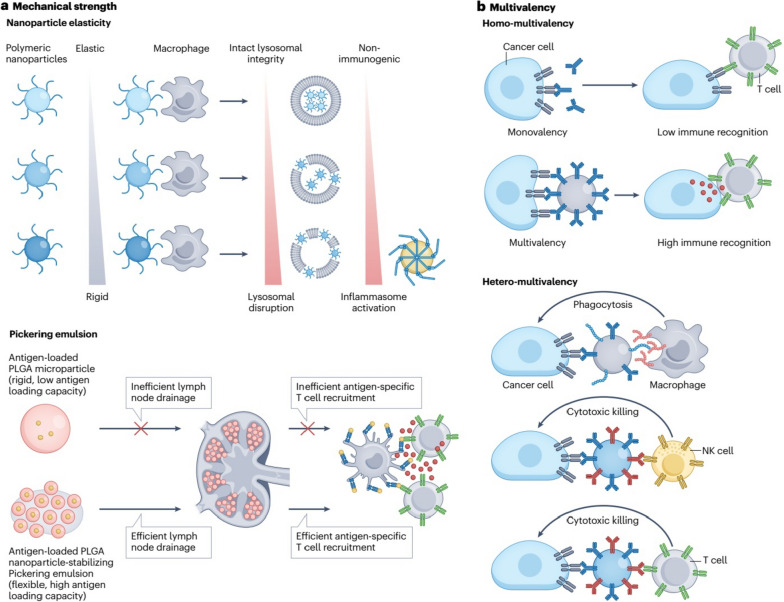Fig. 5.
The impact of mechanical strength and multivalency of nanomaterials on cancer immunotherapy outcomes. a, the stiffness of polymeric nanoparticles influences the stability of lysosomes, which is related to inflammasome activation in cancer immunotherapy. The flexibility of these nanomaterials governs their adaptability and lateral movement, which in turn affects their ability to load antigens and target lymph nodes. b, Nanoparticles with multiple binding sites can trigger immune signaling or promote the attraction of immune cells within the tumor environment. Nanoparticles with uniform multiple binding sites improve T cell immune recognition by inhibiting immune checkpoints. In contrast, nanoparticles with varied multiple binding sites facilitate interactions between cancer cells and immune cells, resulting in tumor-specific immune responses. Reprint from [130] with a permission from Springer Nature

